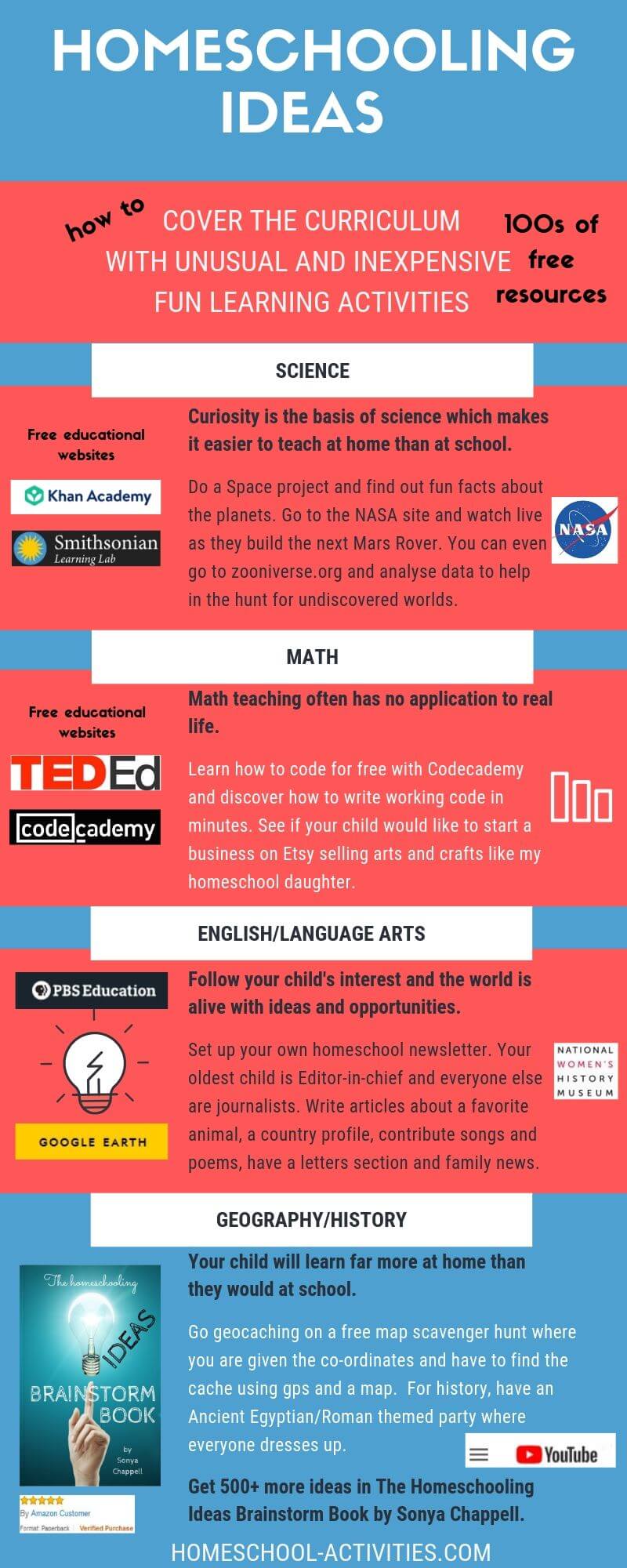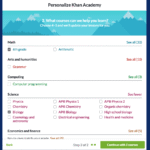Comprehensive Homeschooling Resources: A Guide to Empowering Your Child’s Education
Introduction to Homeschooling Resources
Homeschooling offers a flexible and personalized approach to education, allowing parents to tailor learning to their child’s unique needs and interests. However, starting the homeschooling journey can feel overwhelming. Fortunately, there are plenty of homeschooling resources available to make the process smoother and more enjoyable.
In this article, we will explore various free homeschooling resources, including lesson plans, educational websites, printable worksheets, and community support groups, to help you enhance your child’s learning experience.

1. Free Homeschooling Websites
There are countless educational websites that provide free resources for homeschooling families. These platforms offer everything from full curriculum to individual lesson plans, allowing you to pick and choose what best fits your teaching style and your child’s learning pace.
Here are a few of the top websites to explore:
-
Khan Academy – Offers free video lessons on a wide range of subjects, from math to history, with interactive exercises to reinforce learning.
-
Duolingo – Perfect for teaching languages, Duolingo offers free language lessons through fun games and interactive methods.
-
National Geographic Kids – Provides interactive content that focuses on science, nature, and geography for younger learners.
These websites not only save you money but also help you access high-quality content at your convenience.
2. Printable Worksheets and Activity Packs
Printable worksheets are an excellent way to supplement homeschooling lessons. Worksheets help reinforce learning through practice and can be tailored to suit different subjects and age groups.
-
Education.com – Offers a variety of printable worksheets, from math problems to reading comprehension exercises.
-
Teachers Pay Teachers – A platform where teachers share their printable resources, many of which are free, covering subjects like writing, math, and science.
-
Twinkl – Provides thousands of worksheets, lesson plans, and interactive activities for all ages, many of which are free.
Whether you are teaching math, language arts, or science, printable worksheets can help children grasp concepts more effectively and provide a break from screen time.
3. Free Homeschooling Curriculum
A comprehensive homeschooling curriculum is essential for guiding your child’s education and ensuring that they meet academic milestones. Several websites offer free or low-cost curriculum options, making it easier to structure lessons and track progress.
-
Easy Peasy All-in-One Homeschool – A free, complete K-12 curriculum that covers subjects like math, science, reading, and history. It’s structured and offers a full range of lessons and resources for homeschooling families.
-
Ambleside Online – A free Charlotte Mason-style curriculum that includes suggested books, schedules, and lesson plans. This is ideal for families who prefer a literature-based approach to learning.
-
The Good and the Beautiful – Offers free, downloadable language arts and math curriculum that covers a variety of grade levels.
Having a structured curriculum provides both parents and children with a clear roadmap, helping to stay organized and focused on key learning goals.
4. Online Homeschool Communities
Homeschooling can sometimes feel isolating, especially for new homeschooling families. Online communities provide a platform for homeschooling parents to connect, share ideas, and support each other.
-
Facebook Groups – There are numerous homeschooling groups on Facebook where parents exchange lesson ideas, share resources, and offer advice.
-
Reddit’s Homeschooling Subreddits – A community-driven platform where users can ask questions, share their experiences, and discuss homeschooling strategies.
-
Homeschooling Forums – Websites like Homeschool World and Secular Homeschool offer forums where parents can find resources, ask for advice, and engage in discussions.
Joining these communities helps reduce feelings of isolation and allows you to gain valuable insights from other homeschooling families.
5. Educational YouTube Channels
Incorporating YouTube channels into your homeschooling routine can be a fun and interactive way to enhance your child’s learning. Many educational YouTubers offer lessons on topics ranging from science to social studies, in engaging formats.
-
CrashCourse – Offers educational videos on subjects such as history, chemistry, and literature in an entertaining and accessible format.
-
SciShow Kids – Provides fun and educational videos focused on science, perfect for younger children.
-
Math Antics – Breaks down complex math concepts into simple, easy-to-understand videos.
YouTube is a fantastic resource for supplementing lessons, allowing children to learn at their own pace and revisit topics as needed.
6. Homeschooling Support Groups
Sometimes, the best resources come from the people around you. Homeschooling support groups provide not only resources but also emotional and practical support. Many of these groups organize events, field trips, and social activities for homeschooling families.
-
Co-op Groups – Local co-op groups allow homeschooling families to work together, share resources, and sometimes even hire tutors or specialists for specific subjects.
-
Meetup – This platform offers various local groups for homeschooling families to connect, share resources, and even host events like field trips.
-
Homeschooling Associations – Organizations like the National Home Education Research Institute (NHERI) and Home School Legal Defense Association (HSLDA) offer legal advice, support, and resources for homeschooling families.
Support groups are invaluable for making connections with other homeschooling families and finding additional resources and opportunities for your child’s learning.
7. Free Homeschooling Resources for Special Needs
If you are homeschooling a child with special needs, there are specialized resources to support their education. These resources can help create a personalized learning experience for children with learning disabilities, ADHD, and other special needs.
-
Understood.org – Provides resources for parents of children with learning differences, offering tips on everything from reading to managing behavior.
-
Special Ed Homeschooling – A website dedicated to offering advice and resources for homeschooling children with special needs, including free lesson plans and worksheets.
-
The Autism Helper – Offers strategies, lesson plans, and worksheets tailored to children with autism spectrum disorders.
These resources ensure that every child, regardless of ability, can access a quality education in a supportive environment.
8. Homeschooling Tips for Success
Homeschooling can be both rewarding and challenging. To make the most of your homeschooling experience, here are a few tips for success:
-
Stay Organized – Keep a detailed schedule and plan your lessons in advance. Organization helps you stay on track and prevents last-minute scrambling.
-
Be Flexible – Remember that homeschooling is not rigid. Adjust your plans when necessary, especially when your child shows interest in a topic that diverges from the schedule.
-
Include Field Trips – Field trips are an excellent way to reinforce what your child has learned. Look for free or low-cost activities in your area.
By staying organized and flexible, you can create a learning environment that is both effective and enjoyable for your child.
FAQs: Homeschooling Resources
Q1: Are homeschooling resources really free?
A1: Yes! Many websites, platforms, and communities offer free resources, such as lesson plans, worksheets, and even full curriculums. Sites like Khan Academy and Easy Peasy All-in-One Homeschool provide quality content without charging any fees.
Q2: How do I know which homeschooling resources are best for my child?
A2: It depends on your child’s learning style and needs. Try different resources and see what works best for your child. For example, visual learners might benefit from Khan Academy, while hands-on learners may prefer printable worksheets.
Q3: How can I stay connected with other homeschooling families?
A3: Join online communities like Facebook groups, Reddit, or local co-ops to meet other homeschooling parents. Sharing ideas and experiences can be incredibly helpful and supportive.
Conclusion
Homeschooling can be a fulfilling journey when armed with the right resources. Whether you’re looking for free lesson plans, educational websites, or support groups, there are countless options to help you navigate the world of homeschooling. By utilizing these homeschooling resources, you can ensure that your child receives a well-rounded and personalized education.
Remember, homeschooling doesn’t have to be overwhelming. With the right tools and a supportive community, you can create a learning environment where your child thrives academically and socially.

For more insights into homeschooling resources, check out our Educational Tools.









